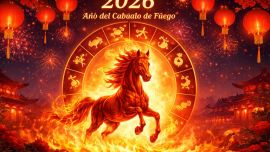Autocratic regimes have long attracted people who imagine they are far more efficient than democracies in which dozens of disparate groups vie for power and do their best to prevent their rivals from getting things done. Those who think this way tend to compare them with smooth-running machines handled by people who know exactly what they are up to, unlike those unfortunate countries in which weak elected governments must take into account the whims of an ignorant populace that is habitually swayed by demagogues. In recent years, much has been made of China’s ability to create huge brand-new, skyscraper-studded cities from scratch, while in the United States bridges sag and exorbitantly expensive public-works projects, especially those involving high-speed rail transportation, take decades to finish, if they ever do.
There is nothing new about any of this. Before the Soviet Union bit the dust, large numbers of bright Western Europeans, Latin Americans and even some North Americans took it for granted that planned economies administered by high-minded leftists would eventually prove to be far more dynamic, and far more equitable, than market-driven ones dominated by corrupt politicians, capitalistic hucksters, lethargic bureaucrats and stroppy trade union leaders.
Respect, whether grudging or not, for autocracies helps explain why recent events in Russia have caused such surprise in other parts of the world. After years of treating Vladimir Putin as an exceptionally sharp-witted dictator, a macho man who had absolutely everything under control, politicians and commentators, including many who loathed Putin but thought he was very much in charge of his enormous country, were suddenly confronted with the possibility that he could be overthrown by an even more ruthless individual who is much given to cursing his enemies in picturesque terms while sending wave after wave of soldiers, many of them hardened criminals, to a certain death in what many describe as a “meat-grinder.”
Could that still happen? The jury is out. Even if Yevgeny Prigozhin – who at the time of writing is still alive, even though he has been derided as a “dead man walking” – has shot his bolt, other less colourful characters could be lining up behind him. In any event, just what is happening in Russia is anyone’s guess. Most accredited experts seem to be as flummoxed as everyone else. Did Prigozhin come near to setting off a new civil war, as Putin himself told his no doubt startled subjects, or was there never any real danger that the flying column he sent in the direction of Moscow before he decided to halt it, saying he was merely trying to send his fellow Russians a patriotic message, would cause much damage?
If, as Putin seems to think, Prigozhin had posed a genuine threat to the established order, the Russian Federation has its days numbered. Like other empires, including the British, what keeps the crazy-quilt patchwork of nations and ethnic groups together is the belief that the centre is strong enough to hold come what may. This no longer seems to be the case. If the boss of a relatively small, though famously murderous, army of mercenaries can capture a major city such as Rostov in a matter of minutes and then get a brigade of his men from the borders of Ukraine to almost a hundred miles of the Kremlin without encountering anything more than a few helicopter gunships and, in some places, crowds of onlookers happy to cheer them on their way, Putin cannot but fear he could soon be up against something far more serious.
And, as he inadvertently made clear in his public references to what happened in 1917, he senses there is a risk that many men in uniform could come to the conclusion Ukraine is none of their business and start melting away as they did when Tsar Nicholas’s empire was crumbling. As far as President Volodymyr Zelenskyy is concerned, this is the best thing that could happen.
Autocracies are brittle by nature. Unlike democracies, which may be slow-moving creatures but can usually manage to adapt themselves to new circumstances without collapsing entirely, they can look frighteningly strong until one day they suddenly come crashing to the ground. This does not make them any less dangerous. On the contrary, knowing that at any moment they could be overthrown by people determined to give them an overdose of their own painful medicine makes their leaders even more brutal than before. With this in mind, some are predicting that, after dealing with Prigozhin in the usual manner by poisoning him or having him shoved out of a top-floor window, Putin will embark on a purge as thoroughgoing as any of Stalin’s.
Russia is one member of the autocratic quartet which is confronting Western democracy. Two others, Iran and North Korea, look almost as unstable. For months now, the Iranian theocrats have been harassed by big public demonstrations led by young women who are sick of having to wear suitably modest Islamic garments, and by their menfolk who want to get rid of the clerics who run their country, while North Korea is suffering yet another famine with large numbers of people starving to death. In response, both regimes have taken to developing long-range missile systems in order to threaten the rest of the world and, by doing so, encourage the local population to overlook the difficulties of everyday life.
So far China, the fourth, and by far the most important, member of the quartet, seem strong enough, but Xi Jinping and his apparatchiks know that over the centuries prestigious dynasties of one kind and another have been violently overthrown and, unless they are very careful, the same could happen to theirs. The nominally Communist regime’s legitimacy owes much to its apparent economic prowess (unlike Mao and his circle, its present incarnation had the good sense to let a people culturally attuned to capitalism do what it has always been very good at) and to a healthy fear of what any repetition of the violent upheavals of not that long ago could mean not just for the man in the Beijing street but also for officialdom. However, if the official statistics are anything to go by, China’s long-lasting economic miracle is beginning to fray at the edges and the demographic outlook could hardly be bleaker. In the view of some Western analysts, this is behind the Chinese regime’s aggressive approach towards Taiwan, though in the last few weeks there have been signs of softening. For straightforward commercial reasons, the Chinese have no desire to risk becoming the target of more US sanctions. They are also clearly worried by what is happening in Russia.



















Comments